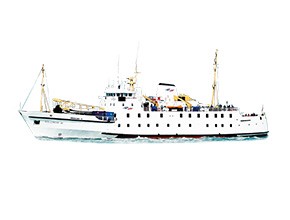Select the service you are using
Skybus
Dangerous goods

Dangerous goods which cannot be taken onto the aircraft
- Corrosive materials — acids, alkalis, wet cell batteries, etc.
- Disabling devices — mace, pepper spray etc.
- Electro shock weapons — such as Tasers
- Explosives — fireworks, flares, etc.
- Flammable gas cylinders
- Flammable liquids — paint, petrol, lighter refills, solvents, varnish, etc.
- Flammable solids — firelighters, etc.
- Oxidising materials — bleach, peroxides, some fertilisers, etc.
- Strike anywhere matches
- Substances liable to spontaneous combustion
- Substances that emit flammable gases in contact with water
- Balance wheels, hoverboards, and other self balancing vehicles
- Toxic (poisonous) substances — weed killer, insecticides, etc.
Dangerous goods which require Skybus approval
The following items can be carried on flights with Skybus, but will require the airline’s approval prior to flying, and are subject to further limitations and requirements:
- Sporting Ammunition — cartridges for weapons
- Heat–producing articles — underwater torches, soldering irons etc.
- Non-flammable gas cylinder — as part of a life-jacket
- Scuba Equipment
- Oxygen and other small cylinders for medical use
- Solid carbon dioxide (dry ice)
- Lithium batteries in equipment or as spares (batteries in excess of 100wh)
- Battery powered wheelchairs or mobility aids
If you have any other items that you think could be classed as dangerous goods, or are similar to the above, please tell us before submitting them for check-in, either as freight, checked baggage or hand luggage.
Dangerous goods that you can carry on an aircraft
The following items can be carried on Skybus flights, but with specific limits on quantities or dimensions:
- Alcoholic beverages
- Cigarette lighter
- E-Cigarette
- Devices containing lithium cells or batteries — laptop computers, cameras, action cams and mobile phones, etc.
- Hair-curlers containing hydrocarbon gas — no gas refills
- Toiletry/Medicinal articles including aerosols- deodorants, hairsprays, perfumes, colognes, medicines, etc.
- Non-flammable, non-toxic gas cylinders — e.g. for operation of mechanical limbs
- Spare lithium batteries — rating not to exceed 99Wh (cabin only)
- Safety matches
*Please note: Following updated advice from the CAA about the carriage by air of Samsung Galaxy Note 7 mobile phones, Skybus has amended its policy as below –
The European Aviation Safety Agency recommends that operators:
- Remind passengers and crew that Samsung Galaxy Note 7 devices should not be put inside the checked baggage.
- While on board the aircraft, passengers and crew should keep the devices turned off and not charge them at any time.
- Remind passengers of the need to immediately inform the cabin crew when a device is damaged, hot, produces smoke, is lost, or falls into the seat structure.
- Ensure that staff responsible for cargo acceptance and processing is fully aware that damaged, recalled or potentially hazardous lithium batteries, including those contained in equipment and/or shipped with equipment, are forbidden to be transported by aircraft as cargo.
Batteries
Traditional batteries for personal equipment (MP3, watches, cameras etc.) must be fitted to equipment. Any spare batteries should be sealed in their retail packaging and be transported either on your person or in your carry on baggage. Small lithium batteries of up to 100Wh may be carried when fitted to equipment. You are limited to 20 spare batteries and they MUST be on the person or in carry on baggage and secured from short circuit. Lithium batteries for larger equipment such as laptops, power drills and camcorders are generally in the 100Wh to 160Wh range. These are allowed when fitted securely to the equipment but any spares MUST be carried on board the aircraft. A maximum of two spare batteries in this category is allowed. Larger lithium batteries (over 160Wh) are not permitted on Skybus aircraft. Damaged batteries of any size are not permitted.
Scillonian
Dangerous goods

Items Not Permitted Onboard
For the safety of all passengers and crew, certain items cannot be carried on our vessels by passengers. Many of these are everyday goods which may seem harmless, but are classed as dangerous goods under the International Maritime Dangerous Goods (IMDG) Code.
Prohibited Items
The following items must not be brought onboard our vessels in general luggage:
- Fuels & Gases – petrol, diesel, gas bottles (camping gas, propane, butane), or fuel containers.
- Explosives & Pyrotechnics – fireworks, flares, smoke bombs, ammunition, or gunpowder.
- Chemicals & Liquids – paints, varnishes, thinners, adhesives, bleach, cleaning agents, pool chemicals, weedkillers, or fertilisers.
- Pressurised Containers – large aerosols (spray paints, insecticides), compressed gas bottles, diving cylinders (unless empty with valves open), fire extinguishers. Medical oxygen cylinders are permitted but must be declared during the booking process and again at check-in.
- Batteries – wet-cell (car/boat) batteries, or large lithium batteries (such as those for e-scooters).
- Fuel-Powered Equipment – chainsaws, strimmers, generators, or any machinery containing fuel (may be carried only if fuel tanks are completely drained and declared to quay staff).
- Weapons – firearms, ammunition, or large blades.
What You Can Bring
Small everyday items such as toiletries, perfumes, laptops, mobile phones, and rechargeable devices are permitted.
Other items may be able to be shipped as freight. The majority of goods listed above can be carried this way – please contact our Freight Team for advice. [Insert link / contact details]
Need Advice?
If you are unsure whether an item is allowed, please declare it at check-in or contact our team before you travel. We will be happy to advise on safe alternatives or approved transport arrangements.
Your cooperation helps us maintain a safe and comfortable journey for everyone.
Important Notes
- We reserve the right to inspect and/or refuse any item or vehicle presented for shipment if regulations are being contravened.
- All gas cylinders must be declared to Quay Staff prior to loading.